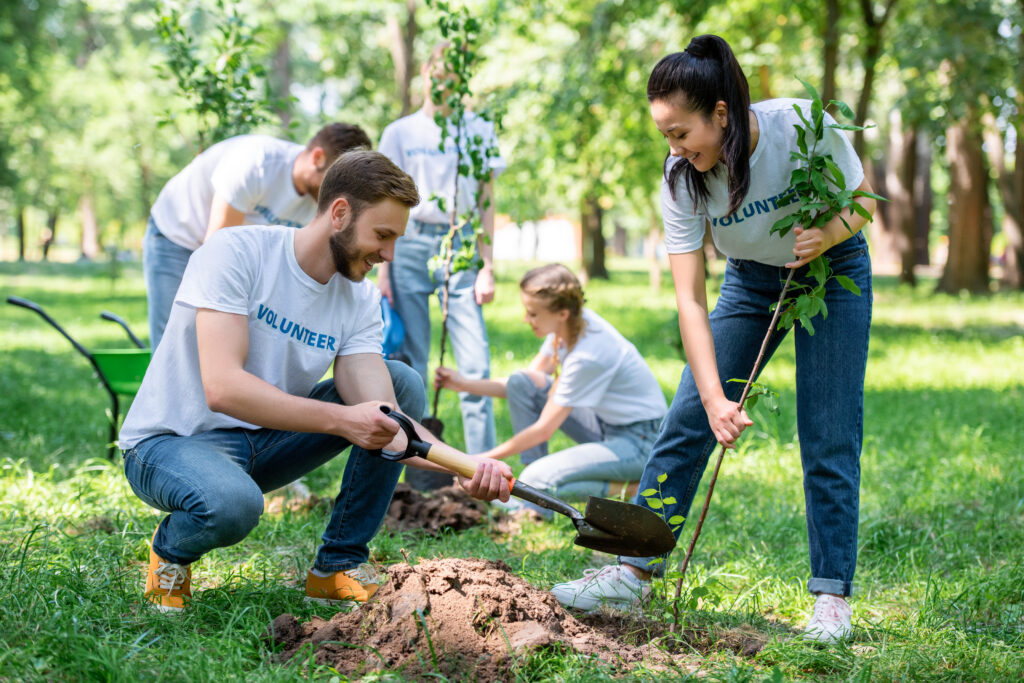Finding Your Tribe: The Key to Building a Supportive Network
Finding your tribe is an essential step in creating a strong and supportive network of people.
It’s important to identify who you can rely on to give you the guidance, motivation, and encouragement you need to reach your goals. Whether you’re looking for new friends or professional contacts, having the right people in your corner will have a positive impact on your life.
In this blog post, we’ll explore the different ways you can find your tribe and build a network of like-minded individuals. So read on!
Why a Supportive Network is Important

Humans are social creatures, and as much as we like to think of ourselves as independent individuals, the reality is that we thrive when we have a support system in place.
Building a supportive network is essential to achieving personal and professional success, maintaining our mental health and overall well-being, and navigating the ups and downs of life.
A supportive network is a group of people who share similar values, interests, and goals. These are individuals who provide us with emotional support, encouragement, and guidance when we need it most. They are the ones we turn to in times of crisis, and the people we celebrate our victories with. A supportive network can be made up of family members, friends, colleagues, or even online communities.
Research has shown that having a strong support system can lead to improved mental and physical health, as well as increased productivity and happiness. In fact, studies have found that individuals with a strong network are less likely to experience depression, anxiety, and stress-related illnesses. They are also more likely to achieve their goals, whether it be in their personal or professional lives.
Ultimately, a supportive network is vital for personal growth and development. It is the foundation on which we build our lives and the safety net that catches us when we fall. Building a supportive network takes time and effort, but the benefits are well worth it. When we surround ourselves with the right people, we create a community of like-minded individuals who uplift us and help us achieve our goals.
Identify Your Needs and Values

Building a supportive network begins with understanding what you need from your relationships and what you value in others.
Take some time to reflect on what matters most to you. Are you looking for friends who share your hobbies or career goals? Do you value honesty and integrity above all else? Knowing what you need and value will help you attract people who align with your beliefs and desires.
To identify your needs and values, consider what brings you happiness and fulfillment. Think about the people you admire and why. Ask yourself what qualities you admire in them and whether those qualities align with your own values. It’s also important to recognize what you struggle with and what types of support you need in those areas.
Once you have a clear idea of what you need and value, it will be easier to identify potential members of your support system. Seek out individuals who share similar goals, values, and passions. It’s important to find people who lift you up and challenge you to be your best self.
Keep in mind that your needs and values may evolve over time, so be open to new relationships and opportunities. Building a supportive network is an ongoing process, and it’s important to continue to reflect on what you need and seek out those who can provide it.
How to Find Your Tribe

Now that you understand why having a supportive network is important, let’s talk about how to find your tribe.
Identify Your Interests
Start by thinking about your interests, hobbies, and passions. You’re more likely to connect with people who share similar interests and values. Join a club or group related to your interests and start attending meetings and events. You can also use social media platforms like Facebook, Instagram, or Twitter to connect with like-minded individuals.
Attend Events
Attend local events and workshops related to your interests. This can be a great way to meet new people and learn new things. You can also look for conferences and seminars related to your profession or field of interest. These events are great for networking and connecting with people who share similar goals and values.
Volunteer
Volunteering is a great way to give back to your community while also connecting with like-minded individuals. Find a cause you’re passionate about and volunteer your time. You’ll meet people who share your values and are committed to making a positive impact.
Reach Out to Your Network
Don’t be afraid to reach out to your current network and ask for introductions. Let people know that you’re looking to expand your network and ask if they know anyone who shares your interests or values. This can be a great way to meet new people and expand your circle of support.
Be Open and Authentic
Finally, be open and authentic when meeting new people. Don’t be afraid to share your passions, interests, and values. This will help you connect with people who share similar values and interests. Be genuine and authentic in your interactions and focus on building meaningful relationships.
Remember, building a supportive network takes time and effort, but it’s worth it. Focus on connecting with people who share your values and interests and be open to giving and receiving support. With the right tribe, you can achieve anything you set your mind to.
Building Strong Relationships

Building a supportive network involves creating strong relationships with the people in your tribe. These relationships are built on a foundation of trust, honesty, and respect.
Here are a few tips to help you build strong relationships with your supportive network:
- Show up. Make an effort to be present for your friends and family when they need you. This means showing up for events, listening to their problems, and being there when they need a shoulder to cry on.
- Communicate. Effective communication is key to building strong relationships. Be open and honest with your friends and family, and listen actively when they are speaking.
- Share experiences. Building strong relationships involves shared experiences. This can be anything from going on vacation together to sharing a meal or attending a concert. By creating memories together, you will strengthen your bond and create a deeper connection.
- Be supportive. Support is a two-way street. Make an effort to be there for your friends and family when they need you, and don’t be afraid to ask for help when you need it.
- Be reliable. Reliability is important in any relationship. If you make plans with someone, make sure you follow through. If you promise to do something, make sure you do it.
By building strong relationships with the people in your supportive network, you will create a foundation of trust and respect that will last a lifetime. Remember, building relationships takes time and effort, but the rewards are well worth it.
Giving and Receiving Support

Once you have built your supportive network, it is important to remember that it is a two-way street. Giving and receiving support is essential to maintain healthy relationships and create a mutually beneficial community.
Here are some tips on how to give and receive support:
- Listen actively. It is important to actively listen to your friends when they need support. Give them your undivided attention and show that you care by asking questions and empathizing with them.
- Offer practical help. If you can, offer practical help to your friends. This could mean helping them move, cooking them a meal, or watching their kids for an evening.
- Be available. Be there for your friends when they need you. If they call or text you, try to respond as soon as possible, even if it’s just to let them know you’re busy and will call them back later.
- Be honest. If you need support, be honest about it. It’s okay to ask for help when you need it. Your friends are there to support you, and they can’t help you if they don’t know what you need.
- Accept help. If someone offers to help you, accept it. It can be difficult to ask for help, but it’s even harder to receive it. Remember that accepting help does not make you weak, it makes you human.
- Express gratitude. When someone supports you, express gratitude. Let them know how much their help means to you and how much you appreciate their support.
Giving and receiving support can be a delicate balance, but it’s an essential part of building a supportive network. Remember that everyone needs help from time to time, and by giving and receiving support, you can create a community that is stronger and more resilient.
Maintaining Your Support System

Once you have built your supportive network, it’s important to maintain these relationships. This means putting in effort to stay connected, show appreciation, and provide support when needed.
Here are some ways to maintain your support system:
- Regularly check in with your tribe. Reach out to your supportive network on a regular basis, even if it’s just a quick text or email to say hello. This will keep the lines of communication open and let your tribe know you’re thinking of them.
- Attend events together. Attend events that interest you together, such as a book club, fitness class, or networking event. Not only will this deepen your relationships, but it can also help you both grow and learn new things.
- Show appreciation. Don’t forget to express gratitude for your supportive network. Send a thank-you note or a small gift to show your appreciation for their support and encouragement.
- Provide support when needed. Being there for your tribe when they need you is essential. Make time to listen and offer a helping hand when needed. This is what being a part of a supportive network is all about.
- Be open to new connections. Just because you have a supportive network doesn’t mean you can’t expand it. Be open to meeting new people and forming new connections. You never know where your next supportive relationship might come from.
By putting in the effort to maintain your support system, you can ensure that these relationships continue to thrive and provide you with the support and encouragement you need to achieve your goals and navigate life’s challenges.
Ready to sell your property? Give us a call today and learn more about our professional photography services and marketing that can boost your property listing!
Plus, explore our virtual assistant coaching program to level up your business. Don’t forget to tune into our new podcast for even more valuable insights!
